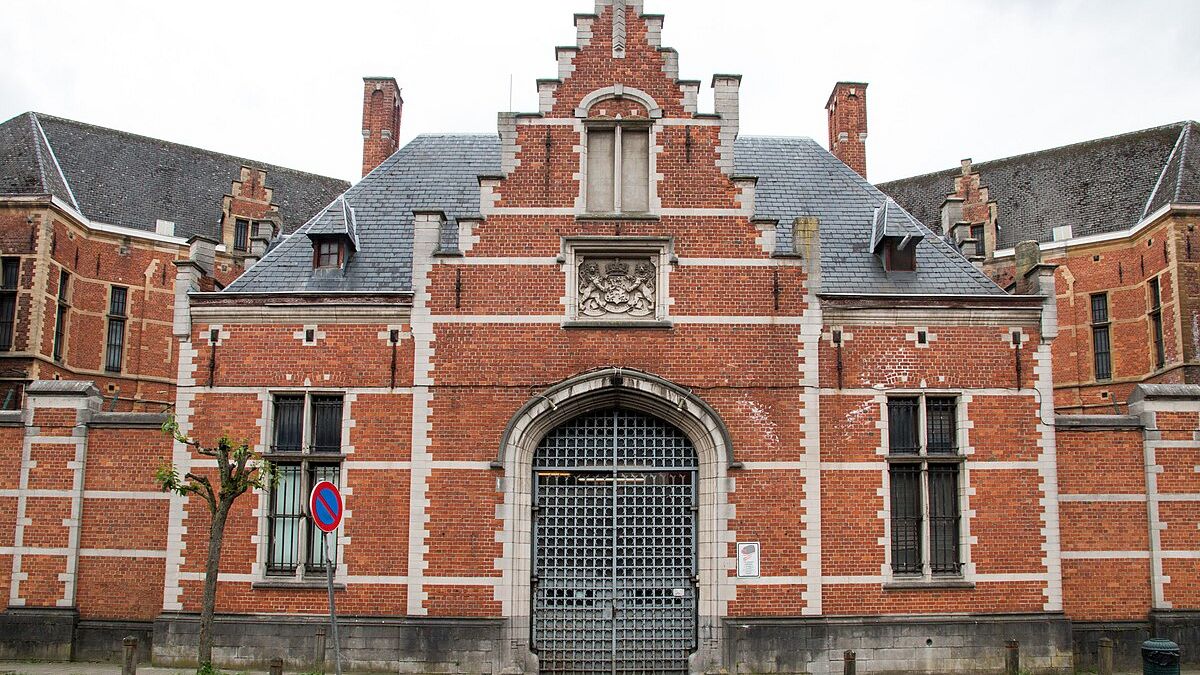A cell of just nine square metres with no toilet can hold up to three prisoners. Sometimes, one of them has to sleep on the floor due to a lack of space. This is common in Belgium, a country that has been struggling with serious prison overcrowding for years, as reported by the non-profit association 9m².
The Forest prison in Brussels, which closed theee years ago, is an example of these conditions. The voices of those who had to survive here can still be heard. One of them is Jean-Luc Mahy, a former prisoner who earned a degree during more than 18 years behind bars and who also thought about taking his own life several times because of the harsh conditions.
“Of course there are tensions in prison. I was the victim of four murder attempts, one of them at the age of 18, when a guy came into my cell, thinking I had killed his girlfriend, and beat me up. I remember the warders saved my life,” he explained to Euronews.
“They took me to the shower. I was there completely naked and the water was running and I was defecating between my buttocks and bleeding a lot. You don’t forget moments like that.”
A prison museum
The 9m² association was created to show society the problems prisoners face and make people think about them.
Its members have turned the empty Forest prison into a “multiperspective meeting space” where researchers, students, civil servants and former prisoners can share experiences to help find solutions to a problem that is getting worse, according to the association’s director, Manuel Lambert.
“We see that overcrowding in prisons continues to increase. There is no improvement. That’s what worries us. Government after government, we seem to be stuck in the same pattern of imprisonment,” Lambert says.
He also explains that “overcrowding means that inmates with very different needs are forced to share small spaces, which increases tensions.”
There is also a “lack of resources” when social areas are used for accommodation, leaving no space for learning or activities. In the words of the 9m² director, “prison will not solve anything in these conditions because those who enter illiterate will leave illiterate and the stay in prison will have been a waste of time.”
Staff shortages make it harder to supervise prisoners and give them personal support. “All this creates a climate more favourable to violence inside the walls, so that the integrity of both inmates and staff is at risk,” Lambert explains.
Without enough psychological support, prisoners have fewer chances to reintegrate, 9m² says.
“There are not enough social workers, doctors and psychiatrists looking after prisoners to allow these people to leave in better conditions than they entered,” stresses Lambert, who also underlines that “the recidivism rate of people who start again is very high in Belgium, so we see that prison is a failure to protect society.”
A widespread problem in Europe
Belgium is one of the countries at the forefront when it comes to prison overcrowding in Europe with over 13,000 people in a prison system designed to hold 11,000. Overcrowding is also common in France, Italy and Cyprus.
The European Committee for the Prevention of Torture (CPT) regularly visits European prisons to check that they are functioning properly and that human rights are not being violated. According to its latest survey, carried out in 2024, the European countries which experience the most severe overcrowding in prisons, determined by more than 105 prisoners per 100 places, are Slovenia (134), Cyprus (132), France (124), Italy (118), Romania (116) and Belgium (113).
Countries with moderate overcrowding, 105 or less but still above capacity, include Croatia (110), Ireland (105) and Sweden (105). Situations close to saturation were also observed in Scotland (100), England and Wales (98) and Serbia (98).
The situation is worsening as, according to Eurostat data, the number of prisoners could increase by up to 200% between 2023 and 2027 in European prisons.
Political context
Prison overcrowding is often linked to a country’s socio-political situation and the belief that long sentences are the most effective form of justice.
Hugh Chetwynd, Executive Secretary of the European Committee for the Prevention of Torture, gives the example of Italy, France or the United Kingdom as countries with “overcrowding problems” and which have “chosen to tighten criminal legislation,” including for drug offences.
“The issue is that there is a lack of confidence in alternatives to imprisonment for drug offences, for example, where people could be prevented from going to prison by the imposition of electronic bracelets and community service,” Hugh Chetwynd told Euronews.
At the same time, he says there is an increase in organised crime in Europe and these groups “can continue with their work and their business while they are in prison because the staff can’t control them properly, because there is so much overcrowding.”
Added to this is the fact that “in most countries, if a court sends a person to a prison with a valid warrant to detain them, the prison cannot expel them and will accept them even if it means that they have to go and sleep on a mattress on the floor of a cell,” Chetwynd said.
Chetwynd believes there is still a long way to go before European societies widely recognise that prisons should reflect and contribute to the betterment of society.
Read the full article here


